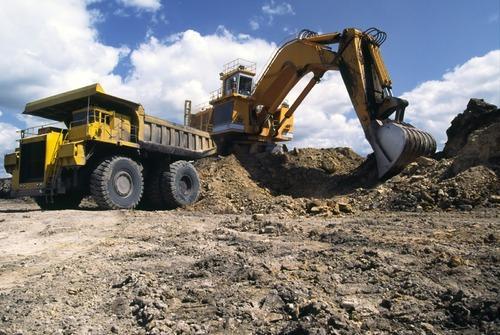
SHAME MAKOSHORI, IN BULAWAYO ZIMBABWE’S mining industry warned yesterday that domestic suppliers risked being shut out of the industry’s value chain after hiking prices by 100%.
The price rage involves deals in United States dollars, mining officials noted, as they queried the rationale behind steep price increases compared to global peers.
It emerged during the ongoing Mining, Engineering and Transport Expo (Mine Entra) that mines had turned to foreign suppliers for 80% of their consumables.
Only 20% of their budgets were being spent on the domestic suppliers, according to President Emmerson Mnangagwa, who officially opened the conference.
At stake is US$2,4 billion in potential opportunities for local suppliers, which is now being transmitted offshore, stated Chamber of Mines of Zimbabwe (CoMZ) president Collin Chibafa, who spoke after Mnangagwa had queried the mining industry’s procurement strategy.
“I was so sad to hear that 20% of your supplies are local and 80% is foreign, which means we are exporting jobs,” Mnangagwa said in a key note address after touring several stands of mining suppliers.
Mnangagwa was impressed by high quality consumables on display but noted that domestic suppliers demanded a premium.
“There is no excuse for the continued importation of consumables like mill balls,” the President added.
- Chamisa under fire over US$120K donation
- Mavhunga puts DeMbare into Chibuku quarterfinals
- Pension funds bet on Cabora Bassa oilfields
- Councils defy govt fire tender directive
Keep Reading
But Chibafa said billions of United States dollars were ending up offshore because of the pricing crisis.
He indicated that unless domestic suppliers returned to normal pricing, they should forget about access to lucrative opportunities in one of the region’s fastest expanding mining sectors.
The industry is projecting to turn over US$12 billion from next year, a huge leap from US$2,9 billion when Mnangagwa took power in 2017.
“There are US$2,4 billion opportunities for local suppliers,” Chibafa told the conference.
“We are exporting jobs and our wealth and this is an unattainable situation. We cannot afford the more than 100% price increases in US dollar terms that we have seen. You must change your business models. You must not be wholesalers, you must seek to manufacture locally,” the CoMZ president added, as Mnangagwa said the industry must find a solution.
As Zimbabwe’s fragile economies tanks, domestic and industrial consumers have been caught in a vexing price rage, with goods and services shooting in United States dollars.
Prices hikes of wider margins have also been experienced in the free falling Zimbabwean dollar, triggering sharp hikes in inflation, which trudged towards 200% last month.
Along with consumers, industrialists and miners have argued that rocketing prices were unjustified, and consumer rights groups have warned of stiffer resistance as the economic crisis deteriorates.
Last week, the Consumer Council of Zimbabwe said government must ameliorate the situation by effecting high tax free thresholds during an upcoming review of the 2022 national budget on Thursday next week.
Experts yesterday said mining industrialists have indicated business hiking prices to unsustainable rates could end up in the doldrums.










